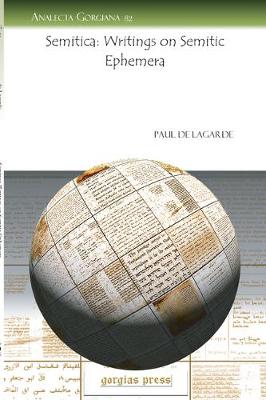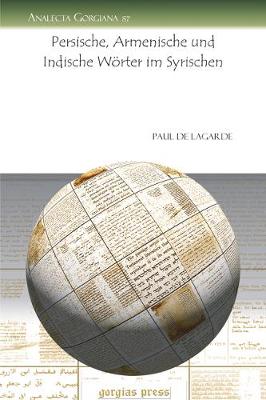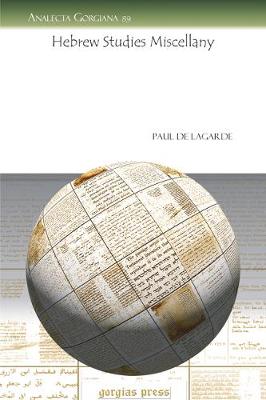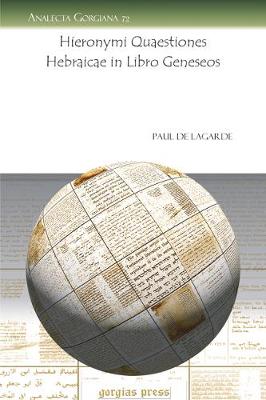Analecta Gorgiana
3 primary works • 4 total works
Book 82
Originally published in two small volumes of Semitic ephemera written in German, this collection of observations of Paul de Lagarde still contains his cogent insights into the world of Semitic linguistics. Critical remarks on the book of Isaiah introduce his characteristic detail on a number of verses in the prophetic book. The second selection concerns the clarification of Akkadian (Chaldean) words occurring in the Hebrew Bible. In the second major section of the work, de Lagarde presents the leaves of the Septuagint of Codex Sarravianus found in Paris. This annotated Greek material comes from the books of Exodus, Leviticus, and Numbers.
Book 87
Persische, Armenische und Indische Woerter im Syrischen
by Paul Anton de Lagarde
Published 2 February 2010
Turning his keen linguistic eye toward various influences on the Syriac language, Lagarde he addresses the various Persian, Armenian, and Indic words that occur in Syriac literature. Arranged alphabetically according to the Syriac spelling of the words, Lagarde ably addresses 222 loan words with frequently detailed entries tracing roots of the words back through their linguistic pedigree. For the scholar of comparative Semitic philology who is interested in the wider background and origins of these specific words, this booklet will prove to be a powerful and much-used tool.
Book 89
In this set of articles originally published together in his booklet Orientalia, Lagarde addresses several issues concerning Hebrew studies. The first article, Explanation of Hebrew Words, addresses the use of twelve significant lexemes. Added to this essay is a contribution of Lagarde to the Hebrew reflected in Ephraim the Syrian’s work on Genesis, extant in Armenian. Select passages from Genesis 2 through 38 are given consideration in the light of philological investigation. Together these pieces represent a useful collection of insights into the Hebrew language both through classic philology and through the ecclesiastical interpretation of a scholar in the tradition of Syriac Christianity.



